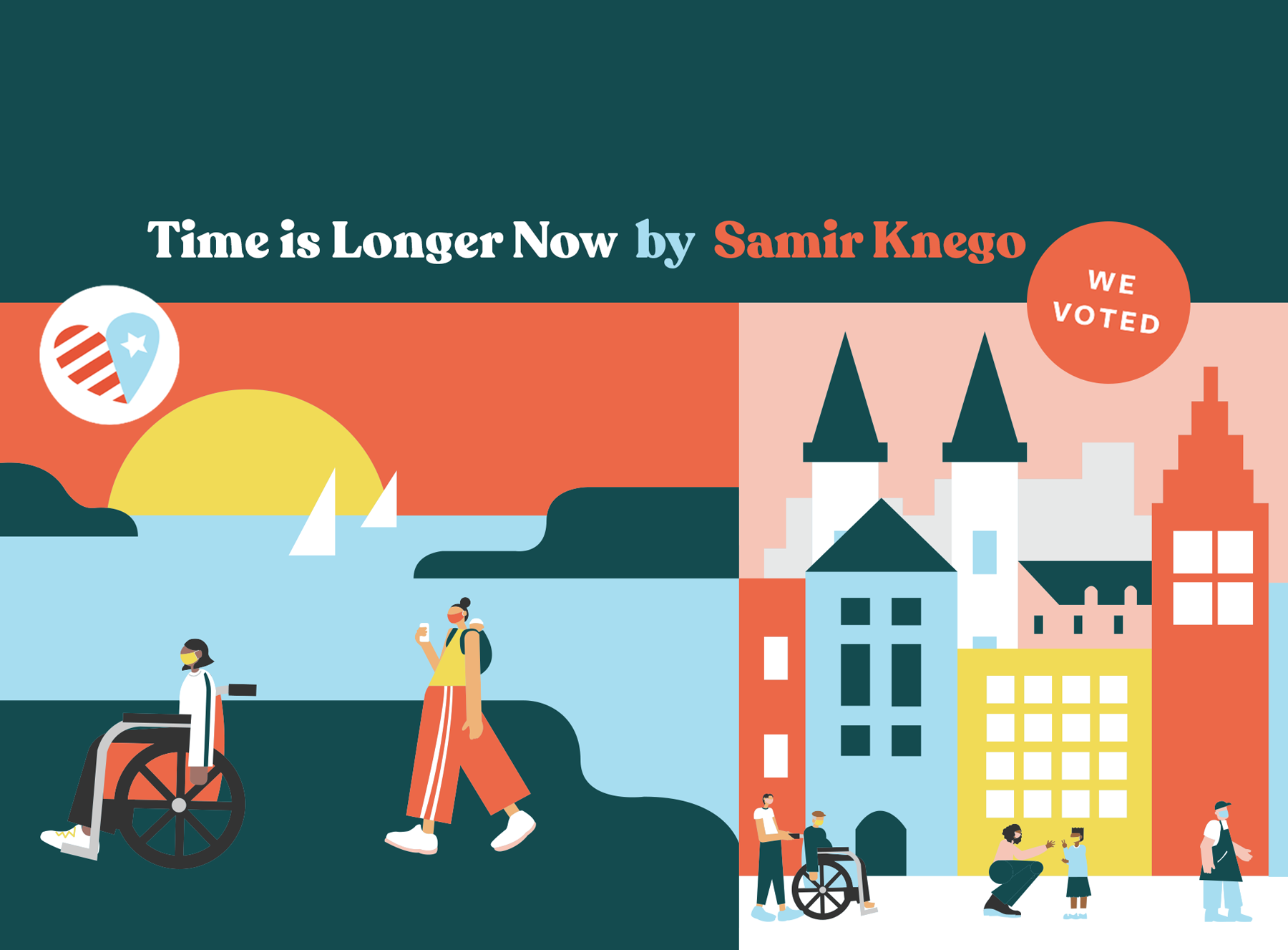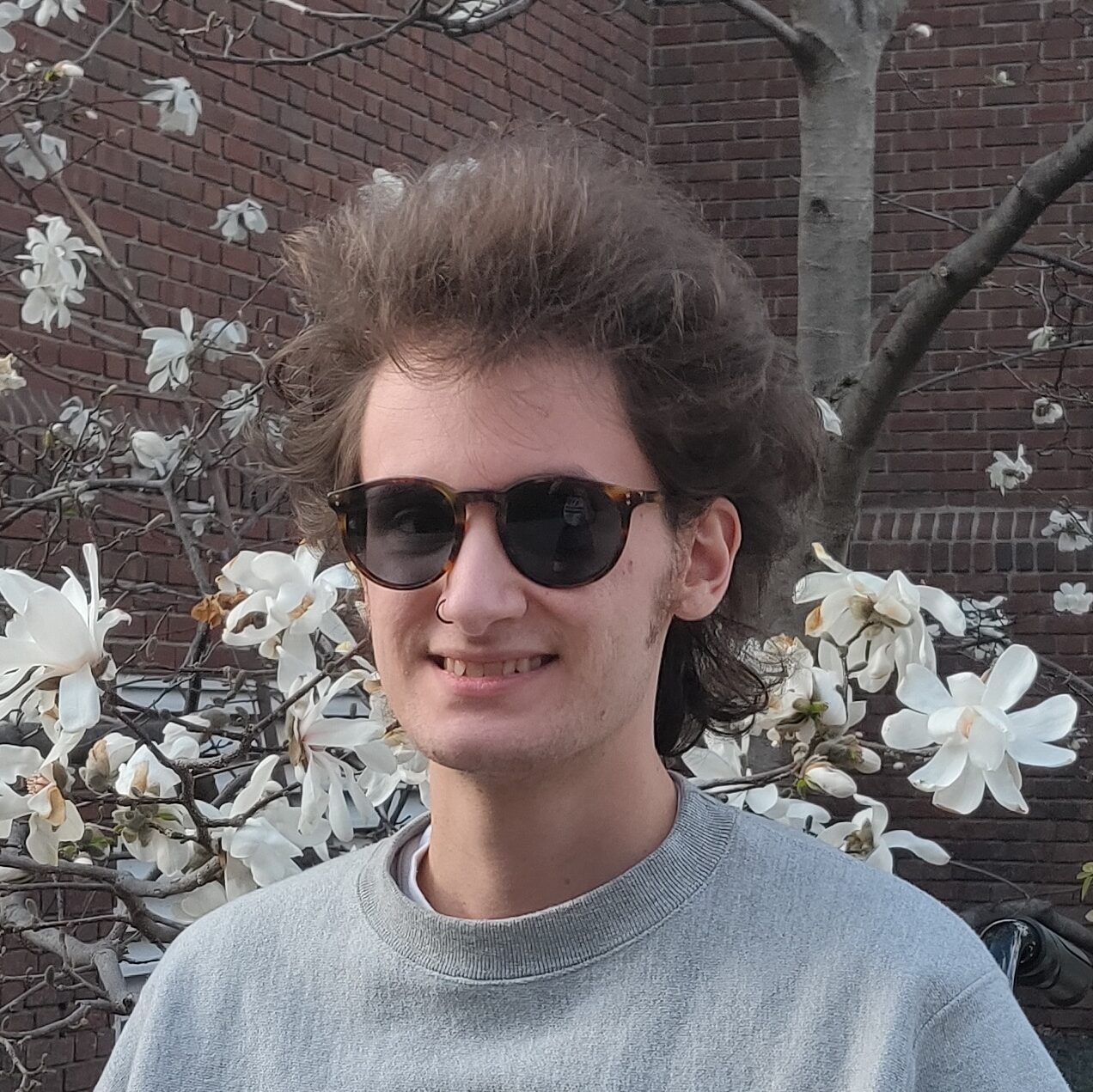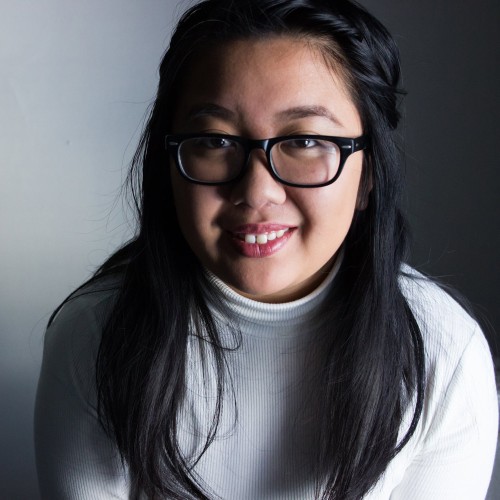
Story by Samir Knego | Art by Brenda Tran
Amidst the lengthening pandemic, time feels different, longer, slower, and the world we live in feels like a particularly difficult place. It’s easy, and common, to see things being long as things being bad, but disability has taught some of us otherwise.
Like many Disabled people, I know how to live slowly, and know that to move/work/live on a longer time frame is not to do so better or worse than nondisabled people.
In March, the world came down to my speed. I was ready to wait—my Disabled experience has taught me that time is long, illness longer.
Long lockdowns were the first big surprise, then Long Covid—the cases of where people have continued to live with symptoms for months with no end in sight, and/or caused people to develop post-viral fatigue syndromes.
I’ll admit to a certain amount of exasperation at some of the nondisabled shock—who knew it was possible to be sick indefinitely???
Now we’re facing the possibility of a long election, and I see the same sorts of impatience and disbelief that I saw towards distancing and recovery timelines.
I’m not here to scold that impulse. I know that we live in an environment that prizes efficiency, that people want to spare themselves and others from continued pain and hardship, and that it can be hard for those unaccustomed to feeling and being limited to adjust to the reality—and necessity—of their current limitations.
But I also know that time can be long, and that long time is not bad/lost/wasted time.
For many, to be Disabled is to move through the world slowly and with more difficulty than our nondisabled friends. It is to accept a certain measure of restriction in our lives and movements. Chronic conditions have taught some of us that time doesn’t heal.
Let’s be clear: a few months—or years—of lockdowns and distancing do not begin to speak to or teach the Disabled/chronically ill experience, not least given how the pandemic has disproportionately impacted Disabled people.
With that said, if there’s one thing I think (and hope) nondisabled people can take from this pandemic experience to the election and beyond, it’s an acceptance that time can be long, and the speed of its passing is unconnected to its virtue.
If the election result takes months and feels hollow in the end, that’s because it was hollow, not because it was long. Our energy, attention, and anxiety is best directed at the issues that make this election feel consequential, not the time it takes to determine a winner.
If your Disabled friend, neighbor, or coworker takes longer to get dressed, do their shopping, or compose their emails, that says nothing about the quality or joy of their life and work. It says only that it takes longer.
The project you complete quickly may be the one that burns you out for good; a long marriage may not be a happy one; a quick chat may save your day; the long haul of movement work may be the only thing that saves us.
So, don’t get mad at the passage of time. Get mad at injustice. When you pray for a swift end to the pandemic, pray also for a better world to emerge from it. And work for that world. And vote, if you can—the election may be slow, and hollow, but time is long and we’ll need to live a while with the people we elect to be there through it.

What’s your voting plan?
We know that you embrace your civic responsibility, and voting is one piece of that picture. So — tell us about your voting plans. Did you already vote? Are you voting by mail? Voting in person? How are you inspiring others in your family and community to also think through their voting plans? Of course, voting isn’t the only way you contribute to your community. How else are you showing up civically this year? What are you doing beyond voting to be an active leader? Tell us all about it online with the hashtag #DeliveringDemocracy.

This year, Pollen teamed up with 100% Action’s Delivering Democracy campaign to create six, custom illustrated pieces of art celebrating active democracy. The artwork featured here by Brenda Tran is part of that campaign and produced in partnership with 100% Action.
contributors

